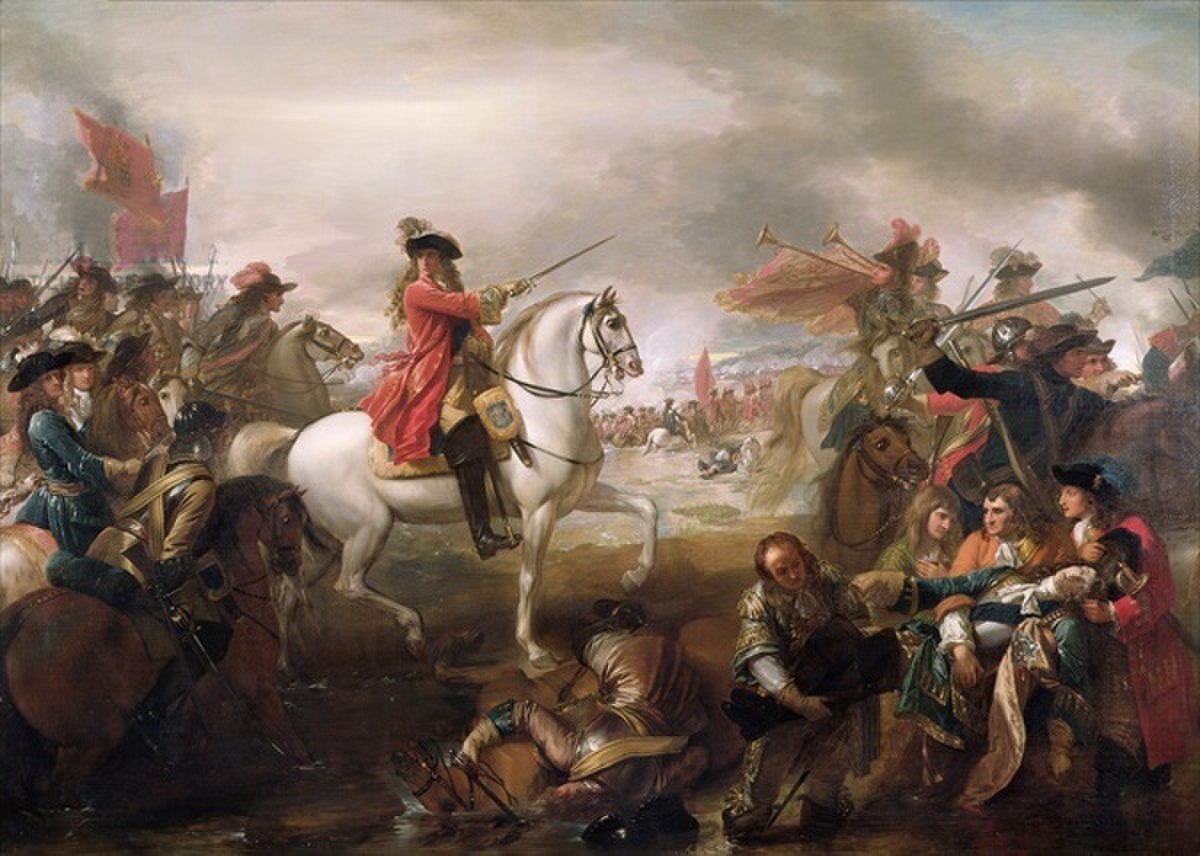
Williamite War in Ireland
IrelandThe Williamite War in Ireland, taking place from March 1689 to October 1691, was a decisive conflict between the supporters of the Catholic King James II and the Protestant King William III. This war was closely tied to the larger Nine Years' War (1688-1697), which involved a broader conflict between France, led by Louis XIV, and the Grand Alliance, which included England, the Dutch Republic, and other European powers.
The war's roots lay in the November 1688 Glorious Revolution, which saw James II deposed in favor of his Protestant daughter Mary II and her husband, William III. James retained significant support in Ireland, primarily due to the country's Catholic majority. Irish Catholics hoped James would address their grievances related to land ownership, religion, and civic rights. Conversely, the Protestant population, concentrated in Ulster, supported William.
The conflict began in March 1689 when James landed in Kinsale with French support and sought to regain his throne by leveraging his Irish base. The war quickly escalated into a series of skirmishes and sieges, including the notable siege of Derry, where Protestant defenders successfully resisted Jacobite forces. This allowed William to land an expeditionary force, which defeated James's main army at the Battle of the Boyne in July 1690, a turning point that forced James to flee to France.
Following the Boyne, the Jacobite forces regrouped but suffered a crushing defeat at the Battle of Aughrim in July 1691. This battle was particularly devastating, leading to significant Jacobite casualties and effectively ending organized resistance. The war concluded with the Treaty of Limerick in October 1691, which offered relatively lenient terms to the defeated Jacobites, though these terms were later undermined by subsequent penal laws against Catholics.
The Williamite War significantly shaped the political and social landscape of Ireland. It solidified Protestant dominance and British control over Ireland, ushering in over two centuries of Protestant Ascendancy. The penal laws enacted in the war's aftermath severely restricted the rights of Irish Catholics, exacerbating sectarian divisions.
The Treaty of Limerick initially promised protections for Catholics, but these were largely ignored as the penal laws expanded, particularly during the War of the Spanish Succession. The Williamite victory ensured James II would not regain his thrones through military means and reinforced Protestant rule in Ireland. The conflict also fostered a lasting Jacobite sentiment among Irish Catholics, who continued to view the Stuarts as rightful monarchs.
The legacy of the Williamite War is still commemorated in Northern Ireland, particularly by the Protestant Orange Order during the Twelfth of July celebrations, which mark William's victory at the Battle of the Boyne. These commemorations remain a contentious issue, reflecting the deep-seated historical and religious divisions stemming from this period.
Ask Herodotus
HistoryMaps Shop

Heroes of the American Revolution Painting
Explore the rich history of the American Revolution through this captivating painting of the Continental Army. Perfect for history enthusiasts and art collectors, this piece brings to life the bravery and struggles of early American soldiers.








